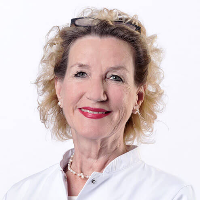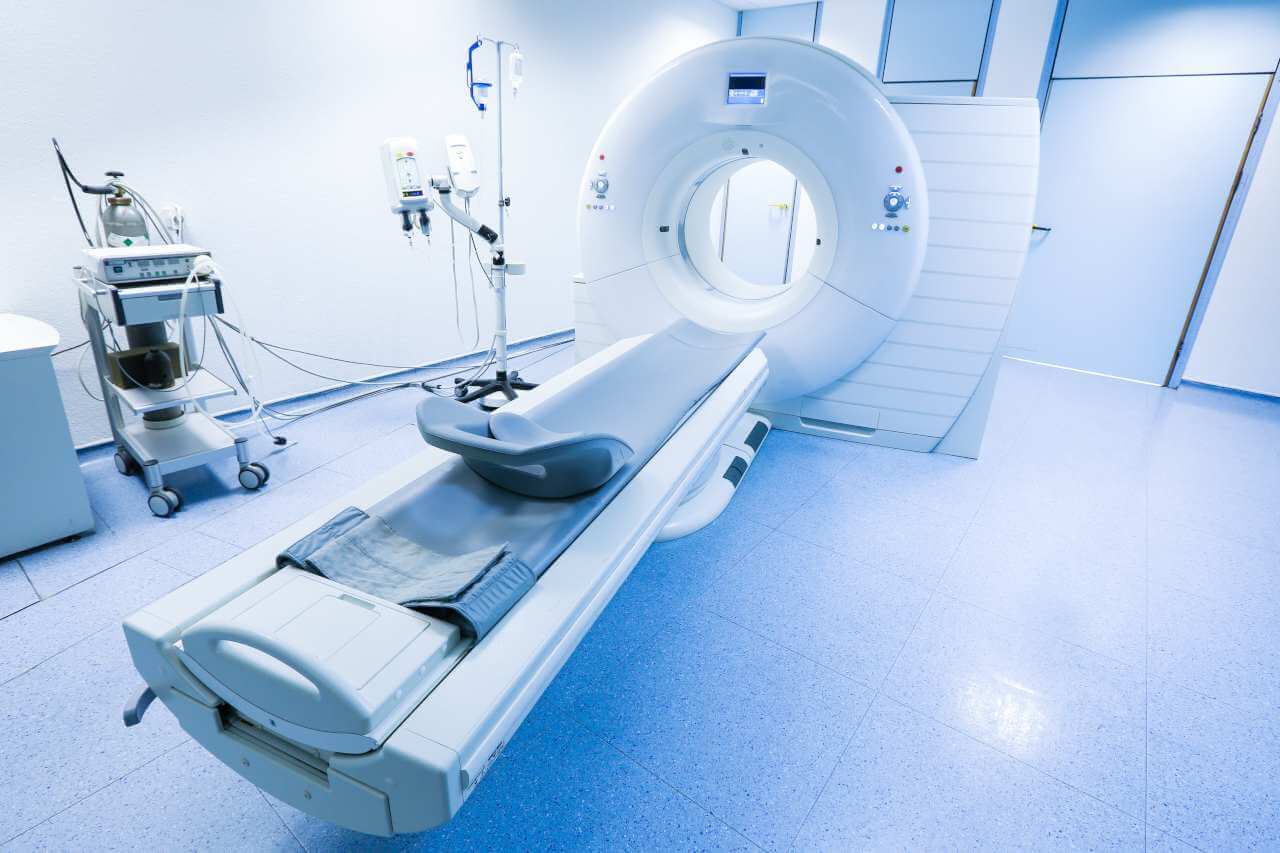
The program includes:
- Initial presentation in the clinic
- clinical history taking
- review of medical records
- physical examination
- laboratory tests:
- complete blood count
- general urine analysis
- biochemical analysis of blood
- TSH-basal, fT3, fT4
- 24-hour urine collection with analysis
for urinary free cortisol excretion
- ultrasound of the adrenal gland
- CT/MRI scan of the head
- low-dose and high-dose dexamethasone
suppression tests - preoperative care
- transsphenoidal resection of pituitary tumor
- symptomatic treatment
- control examinations
- cost of essential medicines and materials
- nursing services
- full hospital accommodation
- explanation of future recommendations
- nursing services
- services of all leading experts
- explanation of individual treatment plan
Required documents
- Medical records
- Brain MRI (if available)
Service
You may also book:
 BookingHealth Price from:
BookingHealth Price from:
About the department
The Department of Adult and Pediatric Neurosurgery at the Meoclinic Hospital Berlin offers the full range of high-precision diagnostics and modern surgical treatment of diseases of the nervous system. A special area of the department's clinical activity is interventional pain management for the treatment of chronic pain in the back and neck, chronic headaches. In cooperation with spinal surgeons from the Department of Orthopedics, the specialists perform surgical interventions to treat spinal diseases and injuries of any severity. In addition, the doctors of the medical facility successfully cope with the treatment of benign and malignant diseases of the brain and spinal cord. The department's surgeons perform operations on the nervous system using low traumatic techniques that ensure high safety of treatment and minimal hospitalization. Neurologists are often involved in the therapeutic process, which contributes to the provision of comprehensive medical care to patients. The department has all the necessary resources for the effective restoration of the health of patients with neuropathologies, and the professionalism of the doctors of the medical facility is at the highest level. The Head Physician of the department is Prof. Dr. med. Terttu Pietilä.
The department admits many patients with chronic back pain. At the initial appointment with a neurosurgeon, the patient talks about the nature of pain sensations and their intensity, after which the specialist carries out a clinical examination, based on the results of which he additionally prescribes imaging tests: ultrasound scanning, X-ray imaging, computed tomography, magnetic resonance imaging. The required complex of diagnostic tests is determined by the attending physician. Then the optimal treatment strategy is planned. In most cases, the specialists of the medical facility resort to multimodal therapy, which includes not only painkiller injections, but also such effective methods as massage, cryotherapy, thermotherapy, therapeutic exercises, acupuncture and other procedures.
A large number of clinical cases in the work of the department's medical team account for benign and malignant brain neoplasms. Neurosurgeons perform surgery to resect meningiomas, astrocytomas, acoustic neuromas, gliomas, glioblastomas, lymphomas, medulloblastomas, ependymomas and other tumors. The resection of brain tumors is performed in patients of all age groups – from infants and children to adults and the elderly. When performing surgical treatment, the specialists of the medical facility successfully use microsurgical and minimally invasive techniques that exclude large incisions and minimize trauma to healthy tissues. When performing operations for brain tumor resection, the department's neurosurgeons control all surgical procedures using cutting-edge computer navigation systems, which allow them to avoid damage to functionally important brain structures.
The department also has a successful experience in the surgical treatment of spinal diseases. The patients with spinal disc herniation, vertebral fractures, spondylolisthesis, spinal canal stenosis, spinal tumors and other pathologies can receive effective medical care here. The patients with spinal diseases are often treated in cooperation with experienced orthopedists. Preference is always given to sparing minimally invasive and microsurgical techniques, so the period of hospital stay after the operation is short, the patient can quickly restore mobility and return to normal life.
The department's clinical focuses include:
- Surgical treatment of benign and malignant tumors of the brain and its meninges
- Meningiomas
- Astrocytomas
- Acoustic neuromas
- Gliomas
- Glioblastoma
- Lymphomas
- Hemangioblastomas
- Ependymomas
- Hamartomas
- Medulloblastoma
- Pineal tumors
- Surgical treatment of tumors of the spinal cord and spine
- Surgical treatment of skull base tumors
- Surgical treatment of malformations of the skull, brain and spinal cord
- Spina bifida
- Arnold-Chiari malformation
- Craniosynostosis
- Hydrocephalus
- Normal pressure hydrocephalus
- Surgical treatment of vascular malformations of the brain and spinal cord
- Arteriovenous malformations
- Angiomas
- Aneurysms
- Moyamoya disease
- Cerebral infarction
- Surgical treatment of cavernomas
- Surgical treatment of orbital and optic nerve tumors
- Optic nerve gliomas
- Optic nerve sheath meningiomas
- Surgical treatment of the consequences of traumatic brain injuries and spinal cord injuries
- Surgical treatment of chronic subdural hematomas
- Surgical treatment of trigeminal neuralgia
- Surgical treatment of spinal diseases
- Spinal disc herniation
- Vertebral fractures
- Spondylolisthesis
- Spinal stenosis
- Interventional treatment of chronic back and neck pain, chronic headaches
- Other medical services
Curriculum vitae
University Education and Professional Career
- Since 2016 Head Physician in the Department of Adult and Pediatric Neurosurgery at the Meoclinic Hospital Berlin.
- 2009 - 2015 Head Physician in the Department of Neurosurgery, Epilepsy Center Bethel Bielefeld, Germany.
- 2004 - 2008 Head of the Department of Neurosurgery, Ingolstadt Hospital, Germany.
- 1994 - 2004 Senior Physician and Deputy Head Physician in the Department of Neurosurgery at the Charite University Hospital Berlin.
- 1992 - 1994 Managing Senior Physician and Deputy Head Physician, Department of Neurosurgery, Duisburg Hospital (Academic Hospital of the University of Essen).
- 1989 - 1992 Senior Physician, Department of Neurosurgery, Dortmund Hospital (Academic Hospital of the University of Muenster).
- 1989 Physician, Department of Neurosurgery, Kuopio University Hospital, Finland.
- 1983 - 1988 Assistant Physician, Department of Neurosurgery, Dortmund Hospital (Academic Hospital of the University of Muenster).
- 1985 - 1987 Emergency Physician in the Ruhr region, Germany.
- 1982 Medical examination in Germany and Finland.
- 1981 Internship, Department of Neurosurgery at the University Hospital Essen, Germany.
- 1977 - 1978 Preparatory course in Neuroanatomy, Department of Anatomy II, Ruhr University Bochum, Germany.
- 1976 - 1981 Study of Human Medicine at Ruhr University Bochum and the University of Essen, Germany.
Teaching Career
- 1985 - 1997 Training of nurses in hospitals in Germany, Finland and the Philippines.
- 1994 - 2008 Lectures and seminars, as well as bedside teaching, Charite University Hospital Berlin.
- 2002 Lecture on the surgical treatment of arteriovenous malformations, 4th International Symposium on Arteriovenous Malformations of the Brain and Spinal Cord, International Society for Arteriovenous Malformations (ISAVM), Japan.
- 2005 -2008 Lectures at the University of Oradea, Romania.
- 2012 Lecture on the surgical treatment of brain arteriovenous malformations, University of Athens, Greece.
- Since 2008 Lecture at the University of Tuebingen, Germany.
Memberships in Professional Societies
- German Society of Neurosurgery.
- German-Arab Medical Association.
- European Association of Neurosurgical Societies (EANS).
- German Neurological Society of Neurological Intensive Care and Emergency Medicine (DGNI).
- German Cancer Society.
- Academy for Advanced Training Courses in Medicine of the Medical Association of Westphalia-Lippe.
Founding Member of Professional Societies and Organizations
- 1993 German Society for Neuroendoscopy and Endoscopic Neurosurgery, and since 2000 – Section for Endoscopic Neurosurgery and Neuronavigation of the German Society of Neurosurgery.
- Working Group on Neurovascular Surgery of the German Society of Neurosurgery, and since 2000 – the Section for Neurovascular Surgery of the German Society of Neurosurgery.
Publications and Reports
- More than 160 scientific reports in Germany and abroad.
- More than 100 scientific international publications.
- Organization of 7 national and international congresses, participation in the organizing committee of 11 national and international congresses.
Photo of the doctor: (c) Meoclinic
About hospital
The Meoclinic Hospital Berlin is one of Germany's most renowned multidisciplinary private hospitals offering top-class and patient-centered medical care. The hospital opened its doors to patients back in 2000 and today is deservedly proud of its vast experience. It has 28 specialized departments, each of which is responsible for the treatment of a particular group of diseases. A highly professional medical team consisting of 67 doctors takes care of the health of patients. The basis of the work of the doctors of the hospital is the use of the most advanced and, if possible, sparing treatment methods. The hospital is certified according to ISO 9001:2015 standards, so patients benefit from the highest level of the quality of service, adherence to hygiene and safety standards.
The hospital includes almost all fields of modern medicine: internal medicine, general and abdominal surgery, endocrine surgery, vascular surgery, hernia repair surgery, hand surgery, plastic surgery, pediatric surgery, cardiology, pulmonology, gastroenterology, rheumatology, proctology, gynecology, urology, ophthalmology, orthopedics, neurology, neurosurgery. To provide surgical treatment, the hospital has three high-tech surgical suites, which perform both minimally invasive interventions and DaVinci robot-assisted interventions, as well as the most complex operations lasting several hours. In addition, the hospital has an advanced Radiology Center with innovative devices for computed tomography, magnetic resonance imaging, ultrasound diagnostics and X-ray scanning. These resources allow providing accurate diagnostics and effective treatment of the highest European level.
Despite the fact that the hospital has advanced technologies and modern infrastructure, the focus of the medical staff is on the patient – his needs, wishes and well-being. During the treatment in this medical center, patients are surrounded by care, comfort, and they are treated with maximum respect and understanding. The doctors of the hospital use all their professionalism and medical knowledge for the benefit of patients, saving lives even in particularly complex cases.
Photo: (с) depositphotos
Accommodation in hospital
Patients rooms
The patients of the Meoclinic Hospital Berlin live in well furnished rooms, corresponding to the level of luxury five-star hotels. There is a fantastic view from the windows of the patient rooms on the Gendarmenmarkt, the Reichstag, the Friedrichstrasse or the courtyard of the hospital. The hospital has a pleasant atmosphere, which is also facilitated by soothing colors. The standard patient rooms include a comfortable bed, a bedside table, a desk and chairs, a wardrobe with a built-in safe for storing valuables, air conditioning, a minibar, a TV and a telephone. Free Wi-Fi is available in the patient rooms. Each patient room has an ensuite bathroom with shower and toilet, heated floor. There are bath slippers, towels and toiletries in the bathroom. A bathrobe, shower caps, shaving kit and hairdryer are available upon request.
Meals and Menus
The patients of the hospital are offered tasty and healthy three meals a day: breakfast, lunch and dinner. The menu mainly includes vegetable, fruit, poultry and fish dishes. Each patient has a choice of several menus, including traditional Russian and Arabic cuisine, as well as kosher and vegetarian meals.
If for some reason you do not eat all foods, you will be offered an individual menu. Please inform the medical staff about your dietary preferences prior to treatment.
Further details
Standard rooms include:
Accompanying person
Your accompanying person may stay with you in your patient room or at the hotel of your choice during the inpatient program.
Hotel
You may stay at the hotel of your choice during the outpatient program. Our managers will support you for selecting the best option.




